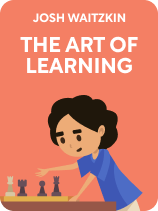

This article is an excerpt from the Shortform book guide to "The Art of Learning" by Josh Waitzkin. Shortform has the world's best summaries and analyses of books you should be reading.
Like this article? Sign up for a free trial here .
How can mindfulness help you become a better athlete? Can practicing mindfulness improve sports performance?
To excel in sports, you need to maintain an emotional state that allows for confident, uninhibited performance. If you have any mental or emotional conflicts, you can’t access peak performance states. Mindfulness can help you achieve that by training you to remain unperturbed in the face of distractions and emotional turbulence.
Learn about the benefits of mindfulness in sports.
Actively Engage With Your Emotions
Practicing mindfulness in sports can help you engage with your emotions and focus through distractions. For example, many athletes need to focus amidst cheering or jeering crowds, and they can do so by accepting the noise as part of the experience.
To maintain mental and emotional stability, actively engage with your emotions by “sitting mindfully” with them. In other words, try to feel your emotions as fully and non-judgmentally as you can, avoiding the urge to label them “good” or “bad.”
Waitzkin describes how when fame overwhelmed him, he went to live in rural Europe, where he developed his techniques and his psychology. The relaxed countryside setting helped him grow into a more open, spiritually-engaged competitor and artist.
(Shortform note: In Emotional Intelligence 2.0, Daniel Goleman argues that understanding your emotions is crucial to success in life and work. Emotion, he says, precedes rational thought: If we’re emotionally riled up, we can’t think straight, and we’ll act irrationally. This supports Waitzkin’s argument that you need to regulate your emotions if you want to succeed. Goleman recommends viewing your emotions objectively, as opposed to labeling them “good” or “bad.” This makes it easier to process and learn from your emotions whether they’re uncomfortable or not, leading to increased self-control and reduced reactivity in stressful situations.)
Process Distractions Mindfully
Waitzkin’s main recommendation for maintaining emotional stability is to be present in the turbulence of your life. Though he doesn’t say this directly, we can infer that in this instance, “presence” refers to a state of calm, focused mindfulness.
In sports, mindfulness can help you handle both internal and external turbulence. It equips you to process discomfort and move beyond it. When faced with distraction, tough emotions, or unexpected chaos, you simply bend and flow like a willow in the wind.
Waitzkin doesn’t directly describe how to do this, but we can infer that it involves mindfully embracing the turbulence and choosing not to react to it. Instead, you accept it as part of the experience.
(Shortform note: Letting go of what we can’t control is a tenet of Stoicism. As Ryan Holiday explains in The Obstacle is the Way, many aspects of reality are out of our control—the weather, other people’s actions, chance hardships, and so on. Holding an “emotional grudge” against reality is useless, since it tires you out and does nothing to fix the problem. Instead, focus on accepting the unwanted circumstances, regulating your emotions, and moving forward with resilience.)

———End of Preview———
Like what you just read? Read the rest of the world's best book summary and analysis of Josh Waitzkin's "The Art of Learning" at Shortform .
Here's what you'll find in our full The Art of Learning summary :
- Life advice from chess prodigy and tai chi World Champion Josh Waitzkin
- Detailed looks at the psychological and technical sides of skill-building
- How to build any skill from the bottom-up







There is research to suggest that all it takes to experience the positive benefits of mindfulness is 10 minutes of practice a day for 10 consecutive days. So why not set yourself a challenge? In fact you can chosen a short 10 minute activity to complete each day and track progress over the 10 days to see if you notice any positive change!